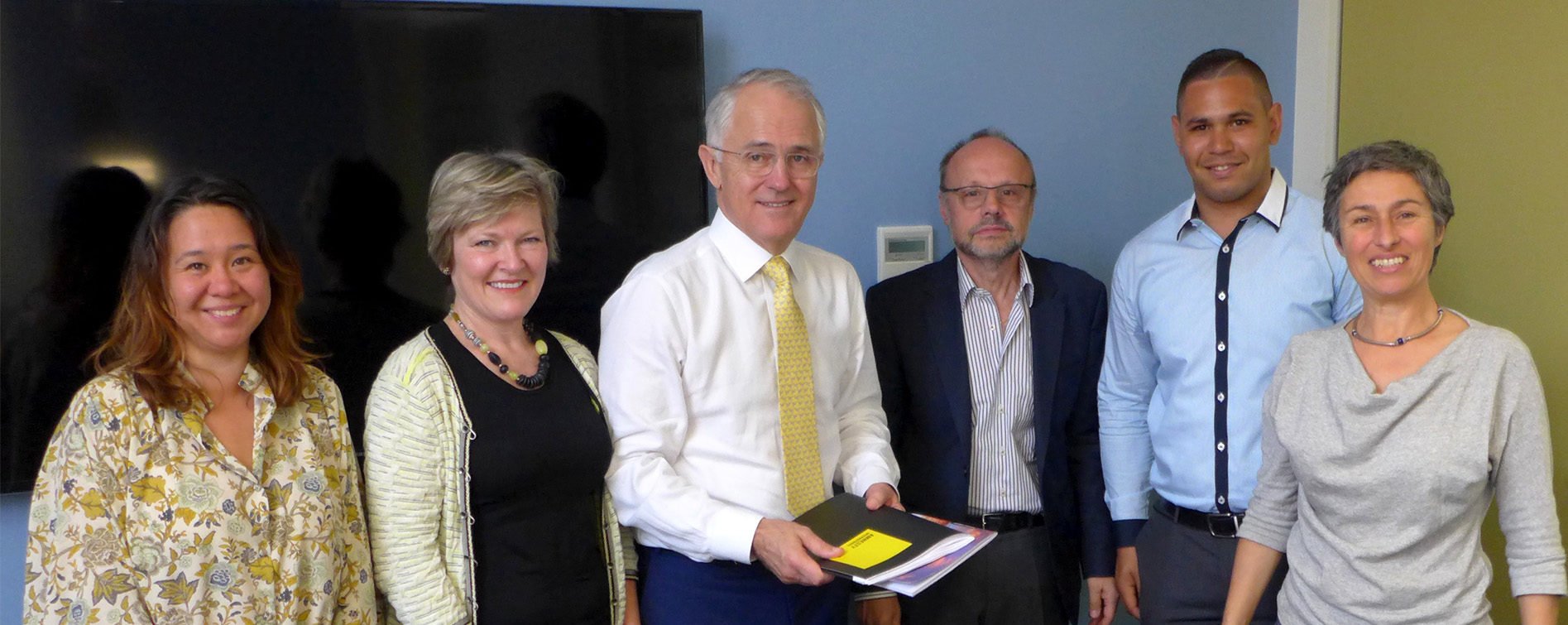Prime Minister Turnbull must demonstrate to the United Nations his commitment to Indigenous peoples’ rights, said Amnesty International, as the watchful eye of the UN falls on Australia’s dismal Indigenous rights record – just seven months before the vote on whether Australia secures a Human Rights Council seat.
The UN Special Rapporteur on the Rights of Indigenous Peoples, Ms Victoria Tauli-Corpuz, has landed in Australia for a two-week investigation of issues affecting Aboriginal and Torres Strait Islander Peoples. These include soaring Indigenous incarceration rates that see Indigenous children locked up 24 times more than non-Indigenous children, abuses in detention and Indigenous deaths in custody.
Amnesty International is urging Prime Minister Malcolm Turnbull to seize the opportunity of increased UN scrutiny, and commit to a national action plan to end the overrepresentation of Indigenous children in the youth justice system and switch to an approach for children based on prevention and rehabilitation.
“The Special Rapporteur’s visit comes at a time we’re hearing harrowing allegations from young people brutalised by the youth justice systems in the Northern Territory and Victoria,” said Tammy Solonec, Indigenous Rights Manager at Amnesty International Australia.
Abuse, trauma all over Australia
In recent days, allegations from Northern Territory Royal Commission hearings included guards choking or kicking children or threatening to have them raped by other men. The Commission heard evidence from a male guard who held down a teenage girl while her clothes were forcibly removed. Another boy was allegedly denied treatment for a broken collarbone, and later held in isolation for up to three days after being told his mother had died.
Meanwhile, the Victorian parliamentary Inquiry into Youth Justice Centres on Friday reportedly heard allegations of children having limbs broken due their restraints, and being held in isolation for 23 hours a day.
In Queensland, the government still has not released the findings of a review into that state’s youth detention system, where Amnesty International last year uncovered appalling abuse, such as children being stripped naked with a knife, held in solitary confinement, and being threatened by a guard dog.
PM Turnbull needs national action plan
“We have heard allegations of abuse and trauma in youth detention in every state and territory. This is not just a Victorian issue, a NT issue or a Queensland issue – this is an Australian issue, and Prime Minister Turnbull must show Federal leadership in setting a national action plan to address it,” said Tammy Solonec.
Amnesty International has found that successive Australian governments have failed dismally on several of the recommendations made by the previous Special Rapporteur, James Anaya, on his visit almost nine years ago.
In 2009 Mr Anaya recommended the Australian Government immediately address the disproportionate number of Aboriginal and Torres Strait people in custody. He also recommended that particular attention be paid to women, children, deaths in custody and the proper resourcing of Aboriginal and Torres Strait Islander legal services.
Australia could show global leadership
“Despite this, the overrepresentation of Aboriginal and Torres Strait Islander people in detention has continued to rise, and preventable deaths in custody have continued. Meanwhile, the Aboriginal and Torres Strait Islander Legal Services, Aboriginal Family Violence Prevention Legal Services and Community Legal Centres continue to face funding cuts,” said Tammy Solonec.
“Amnesty International urges Prime Minister Turnbull to create this national plan in genuine partnership with Aboriginal and Torres Strait Islander leaders, experts and organisations, who have a wealth of knowledge about how to end the overrepresentation of Indigenous kids in the justice system”.
By drawing on this knowledge, Australia would be uniquely placed to show global leadership on this issue.
Background
Australia is competing against France and Spain for the a coveted spot on the 47 member Human Rights Council. The election will be decided by a vote at the UN General Assembly in New York in October. If successful, Australia’s term on the Council will run from 2018-2020.
Candidates for election to the Human Rights Council must demonstrate their contribution to the promotion and protection of human rights as part of their candidature (UN resolution 60/251) .
